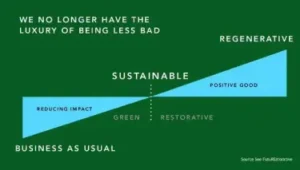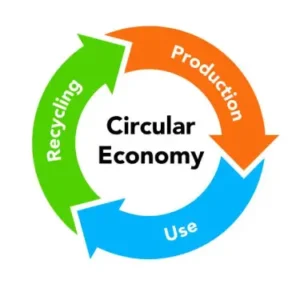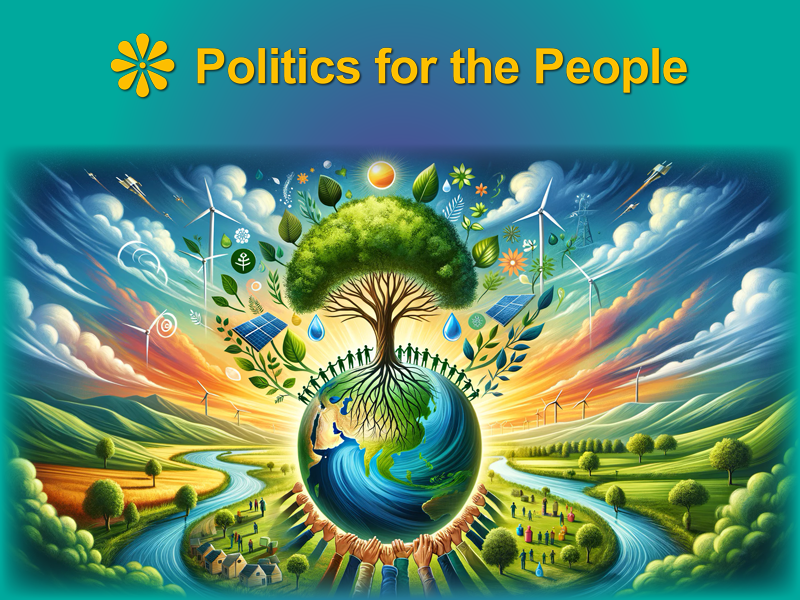Introduction
Ecosocialism is a socio-political ideology advocating for the fusion of ecological sustainability and social justice. Recognizing the interconnectedness of environmental issues and social inequality, Ecosocialism aims to address both simultaneously. This article explores how Ecosocialism looks to transform economic systems to prioritize the well-being of people and the planet, challenging the profit-driven framework of capitalism.
What is Ecosocialism?
Ecosocialism merges ecological sustainability and social justice, offering a comprehensive approach to solving environmental and societal problems. By addressing both environmental degradation and social inequality, Ecosocialism presents a unified solution that prioritizes the well-being of people and the planet. This ideology critiques the profit-driven motives of capitalism, advocating for an economy that serves the needs of the many rather than the few.
Ecosocialism’s Vision
Green Revolution

Ecosocialism envisions a revolutionary shift towards a green economy, promoting renewable energy, sustainable resource management, and ecological regeneration. This vision includes:
1. Renewable Energy: Transitioning from fossil fuels to renewable energy sources such as solar, wind, and hydroelectric power is central to Ecosocialism. This shift not only reduces greenhouse gas emissions but also creates sustainable jobs and energy independence.
2. Sustainable Resource Management: Ecosocialism advocates for the responsible use and management of natural resources. This includes practices like sustainable agriculture, water conservation, and reducing waste through recycling and circular economy principles.
3. Ecological Regeneration: Beyond sustainability, Ecosocialism emphasizes the need to restore and regenerate damaged ecosystems. This involves reforestation, wetland restoration, and protecting biodiversity to enhance ecosystem resilience.
Social Justice

Ecosocialism looks to eradicate social inequalities by prioritizing fair distribution of resources. Key aspects include:
1. Equitable Resource Distribution: Ensuring everyone has access to essential resources like clean water, nutritious food, and housing is fundamental to Ecosocialism. This involves redistributing wealth and resources to reduce inequality.
2. Access to Education and Healthcare: Ecosocialism guarantees universal access to quality education and healthcare, recognizing these as basic human rights. By investing in these areas, Ecosocialism aims to empower individuals and communities, fostering social cohesion and economic stability.
3. Empowering Marginalized Communities: Ecosocialism emphasizes the importance of including marginalized communities in decision-making processes. This ensures that their voices are heard, and their needs are addressed, leading to more inclusive and just policies.
Climate Action
Ecosocialism recognizes the environmental crisis as a central concern and advocates for immediate and ambitious climate action. Strategies include:
1. Phasing Out Fossil Fuels: Ecosocialism calls for the gradual elimination of fossil fuel use, replacing it with clean energy alternatives. This transition is essential to mitigate climate change and reduce environmental pollution.
2. Transition to Renewable Energy Sources: Investing in renewable energy infrastructure and technologies is crucial for a sustainable future. Ecosocialism supports policies and incentives that encourage the adoption of renewable energy at both the local and national levels.
3. Implementing Robust Environmental Regulations: Strong environmental laws and regulations are necessary to protect natural resources and limit harmful practices. Ecosocialism advocates for strict enforcement of these regulations to ensure environmental sustainability.
System Change
Ecosocialism challenges capitalism’s fundamental principles, arguing that profit-driven motives perpetuate environmental degradation and social injustices. The proposed changes include:
1. Democratic Ownership: Ecosocialism promotes collective ownership of resources and means of production. This ensures that the benefits of economic activities are distributed equitably among all members of society.
2. Participatory Decision-Making: In an Ecosocialism society, decision-making processes are democratic and inclusive. This means that all stakeholders, especially marginalized groups, have a say in policies and practices that affect their lives.
3. Economic Systems Run on Human and Ecological Well-Being: Ecosocialism seeks to transform economic systems to prioritize human well-being and ecological sustainability. This involves shifting away from growth-oriented models to steady-state economies that respect ecological limits.
Ecosocialism vs. Capitalism
Profit vs. People

While capitalism prioritizes profit maximization and private ownership, often leading to exploitative practices and environmental harm, Ecosocialism emphasizes collective ownership and democratic decision-making. The differences include:
1. Capitalism: Driven by profit maximization, capitalism often results in wealth concentration and exploitation of labor and natural resources. This leads to social inequalities and environmental degradation.
2. Ecosocialism: In contrast, Ecosocialism focuses on the well-being of people and the planet. It promotes collective ownership and democratic control of resources, ensuring that economic activities help all members of society rather than a select few.
Economic Growth vs. Steady-State Economy
Capitalism focuses on economic growth and wealth accumulation, while Ecosocialism advocates for a steady-state economy working within ecological limits. Key points include:
1. Capitalism’s Growth Imperative: Capitalism’s emphasis on continuous economic growth often leads to resource depletion and environmental destruction. This growth is unsustainable and detrimental to long-term ecological health.
2. Ecosocialism’s Steady-State Economy: Ecosocialism proposes an economic model that works within the planet’s ecological limits. This involves keeping a stable level of economic activity that meets human needs without compromising the environment.
Transforming the Economy
People Over Profit

Ecosocialism challenges the profit-driven mentality of capitalism, advocating for an economic system cantered around human needs. This involves:
1. Human-Centric Economy: Ecosocialism prioritizes the well-being, health, and happiness of individuals over the accumulation of wealth. This means creating policies and practices that support human development and quality of life.
2. Active Participation in Economic Decisions: Ecosocialism ensures that people’s voices, rights, and aspirations take precedence in shaping economic decisions. This involves inclusive decision-making processes that consider the needs and perspectives of all community members.
Sustainable Future
Ecosocialism recognizes the urgent need to address environmental crises like climate change, deforestation, and pollution. Strategies include:
1. Promoting Sustainable Practices: Ecosocialism supports practices that reduce environmental impact, such as organic farming, sustainable forestry, and green building techniques.
2. Investing in Renewable Energy: Ecosocialism advocates for the development and deployment of renewable energy sources to replace fossil fuels. This transition is essential for reducing greenhouse gas emissions and combating climate change.
3. Regenerative Approaches: Ecosocialism promotes regenerative approaches that restore and enhance natural ecosystems. This includes reforestation, habitat restoration, and sustainable land management practices.
Equitable Economy
Ecosocialism strives to eradicate social inequalities, creating a fair economy helping all members of society. Key points include:
1. Rejecting Wealth Concentration: Ecosocialism opposes the concentration of wealth and power in the hands of a few. Instead, it advocates for fair distribution of resources and opportunities, ensuring that everyone has access to the essentials of life.
2. Access to Social Services: Ecosocialism guarantees universal access to education, healthcare, and social services. By investing in these areas, Ecosocialism aims to create a more just and fair society where everyone can thrive.
3. Opportunities for All: Ecosocialism looks to create a society where everyone can succeed, regardless of their background or socioeconomic status. This involves policies that support social mobility and reduce barriers to success.
System Change
Ecosocialism calls for systemic transformation, challenging capitalism’s exploitative dynamics. Key elements include:
1. Replacing Profit-Driven Systems: Ecosocialism aims to replace profit-driven systems with ones focused on human and ecological well-being. This involves creating economic structures that prioritize sustainability and social justice.
2. Democratic Ownership: Ecosocialism promotes democratic ownership and control of resources, ensuring that economic benefits are shared equitably among all members of society.
3. Participatory Decision-Making: Ecosocialism advocates for participatory decision-making processes that involve all stakeholders, especially marginalized groups. This ensures that policies and practices reflect the needs and aspirations of the entire community.
Conclusion
Ecosocialism provides a vision of a future where economic systems are reimagined to serve the well-being of individuals, communities, and the natural world. It calls for a shift in priorities, valuing human dignity, environmental sustainability, and social justice more than anything else. Through Ecosocialism, we can transform the economy into a powerful tool for creating a better world, where people and the planet thrive together.
Call to Action
Get Involved
To support Ecosocialism and advocate for ecological sustainability and social justice, consider joining local environmental and social justice organizations. Engage in community discussions, educate others about the benefits of Ecosocialism, and take part in peaceful protests to make your voice heard.
Questions for Readers
1. How do you think Ecosocialism can address the current environmental and social challenges?
2. What steps can individuals take to support the principles of Ecosocialism in their communities?
Share the Article
If you found this article insightful, please share it with your contacts and on social media to spread awareness about Ecosocialism and its potential to transform our world.
References:
Ecosocialism 2023: www.ecosocialism.org.au
Degrowth and Ecosocialism: https://youtu.be/isjWWCRBJBk
Economic Update: Ecosocialism: https://youtu.be/EVHiqZg876k
Renewables Can’t Power Capitalism, They Can Power Ecosocialism: https://youtu.be/Idt_usDDOzM Climate Crisis and Ecological Revolution: https://youtu.be/GVeAfW5opkk

